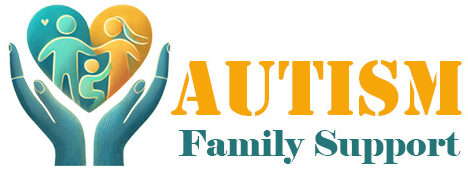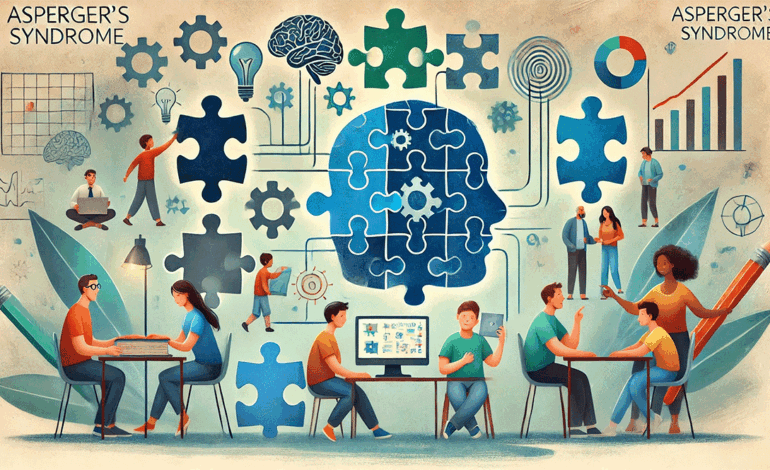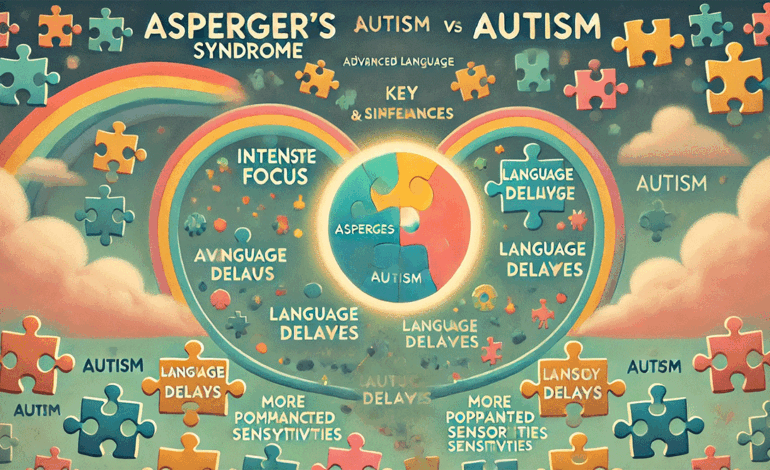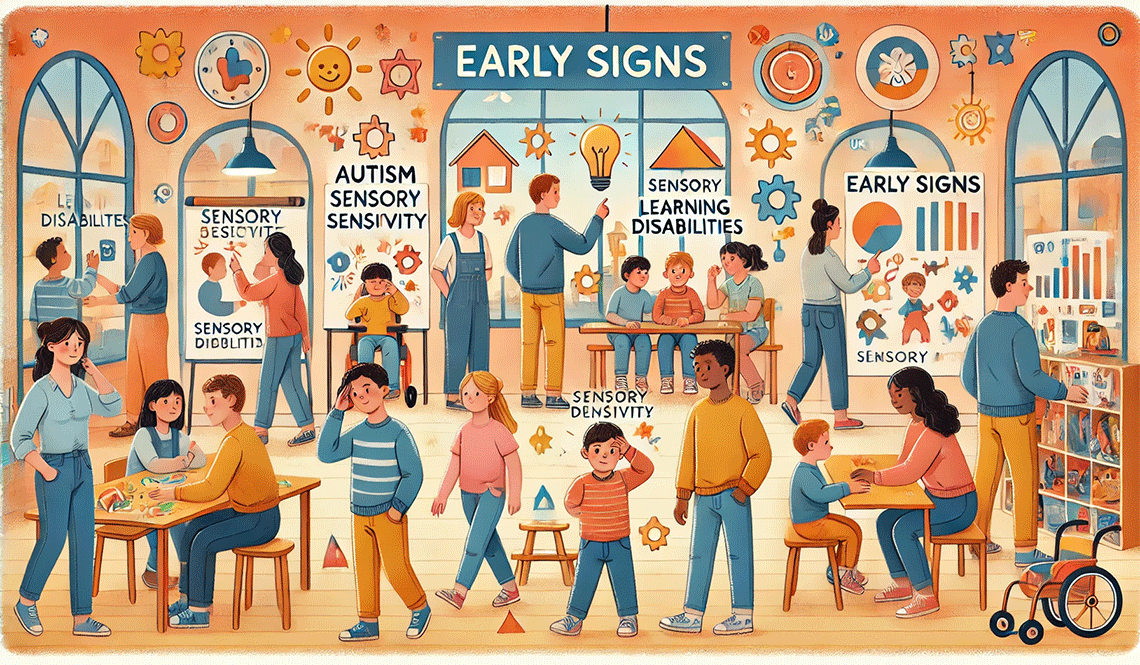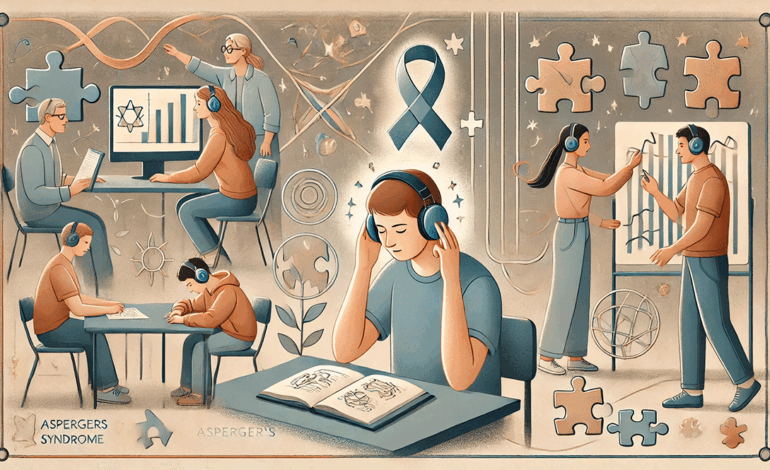
Asperger’s Syndrome in Adults
Asperger’s Syndrome in Adults: Signs and Coping Strategies
Asperger’s Syndrome, now classified under Autism Spectrum Disorder (ASD), is a lifelong neurodevelopmental condition. While much of the focus on Asperger’s revolves around children, many adults live with the condition, often undiagnosed. Understanding its signs in adulthood and effective coping strategies can empower individuals to lead fulfilling lives.
Understanding Asperger’s Syndrome in Adults
Asperger’s Syndrome is marked by challenges in social interactions, restricted interests, and repetitive behaviors. Unlike other ASD forms, individuals with Asperger’s typically have average or above-average intelligence and no significant language delays. In adulthood, the symptoms can manifest differently due to life experiences and learned coping mechanisms.
Signs of Asperger’s Syndrome in Adults
1. Social Interaction Difficulties
- Challenges in Reading Social Cues: Difficulty interpreting facial expressions, body language, or tone of voice.
- Struggles with Small Talk: Preferring deep, meaningful conversations over casual chit-chat.
- Limited Social Circle: Maintaining a small group of close relationships rather than a broad social network.
2. Restricted Interests and Repetitive Behaviors
- Deep Focus on Specific Topics: Intense interest in niche subjects, such as technology, history, or art.
- Repetitive Routines: Strong preference for routines and discomfort with unexpected changes.
- Detail-Oriented Thinking: Paying close attention to details, often excelling in analytical tasks.
3. Communication Challenges
- Literal Interpretation: Struggling to understand idioms, jokes, or sarcasm.
- Monotone Speech: Speaking in a flat tone or with unusual patterns of speech.
- Difficulty in Expressing Emotions: Finding it hard to articulate feelings or empathize conventionally.
4. Sensory Sensitivities
- Overwhelmed by Stimuli: Heightened sensitivity to lights, sounds, or textures.
- Avoidance of Crowded Places: Preferring quiet, controlled environments.
5. Executive Functioning Challenges
- Difficulty Managing Time: Struggling with prioritizing tasks or meeting deadlines.
- Trouble Adapting to Change: Feeling overwhelmed when routines are disrupted.
Diagnosis in Adulthood
Many adults with Asperger’s Syndrome remain undiagnosed due to the subtlety of symptoms or lack of awareness during childhood. Seeking a diagnosis can bring clarity and open doors to support.
1. Steps to Diagnosis
- Self-Assessment: Reflecting on behaviors and challenges that align with Asperger’s traits.
- Professional Evaluation: Consulting a psychologist or psychiatrist specializing in autism.
- Interviews and Tests: Undergoing assessments such as the Autism Spectrum Quotient (AQ) or detailed behavioral interviews.
2. Benefits of Diagnosis
- Validation of Experiences: Understanding personal struggles through the lens of Asperger’s.
- Access to Support: Gaining eligibility for therapies, accommodations, or social programs.
Coping Strategies for Adults with Asperger’s Syndrome
1. Building Social Skills
- Join Support Groups: Connecting with others on the autism spectrum to share experiences and learn strategies.
- Practice Social Scenarios: Role-playing common interactions to build confidence.
- Use Visual Cues: Employing charts or apps to interpret facial expressions and emotions.
2. Managing Sensory Sensitivities
- Create a Sensory-Friendly Environment: Adjust lighting, reduce noise, and use comfortable clothing.
- Use Sensory Tools: Items like noise-canceling headphones or fidget devices can help.
- Plan Ahead: Avoid overstimulation by preparing for outings or events.
3. Improving Communication
- Develop Active Listening Skills: Focus on the speaker and ask clarifying questions.
- Seek Feedback: Request input from trusted individuals to refine communication techniques.
- Use Scripts: Prepare standard responses for recurring situations, like introductions or small talk.
4. Enhancing Executive Functioning
- Use Organizational Tools: Apps, planners, and calendars can help track tasks and deadlines.
- Break Tasks into Steps: Simplify large projects by creating manageable chunks.
- Establish Routines: Develop structured daily schedules to minimize decision-making stress.
5. Seeking Professional Support
- Therapy: Cognitive-behavioral therapy (CBT) can address anxiety or social challenges.
- Occupational Therapy: Assists with sensory integration and daily skills.
- Coaching: Life coaches can help with goal setting and practical life skills.
6. Leveraging Strengths
- Focus on Interests: Turn passions into careers or hobbies.
- Highlight Unique Abilities: Use attention to detail and analytical skills to excel in specific fields.
- Advocate for Accommodations: Request workplace adjustments, like flexible schedules or quiet workspaces.
Living a Fulfilled Life with Asperger’s Syndrome
Adults with Asperger’s Syndrome can lead meaningful, successful lives by embracing their strengths and addressing challenges proactively. Advocacy, self-awareness, and societal understanding are key to creating a supportive environment.
1. Finding Community
- Online Forums and Groups: Platforms like Reddit or Facebook groups provide connections and resources.
- Local Meetups: Community events offer opportunities for in-person interaction.
2. Building Self-Esteem
- Celebrate Achievements: Recognize personal milestones and progress.
- Practice Self-Compassion: Accept limitations without judgment and focus on growth.
